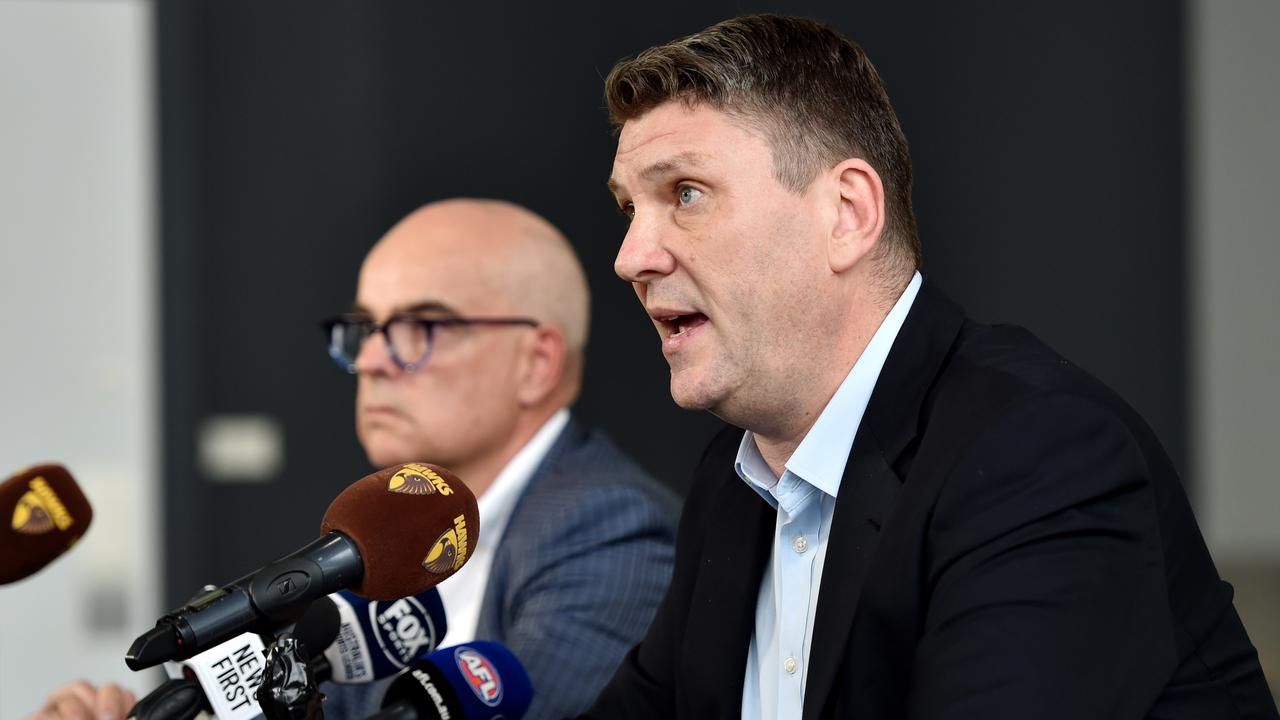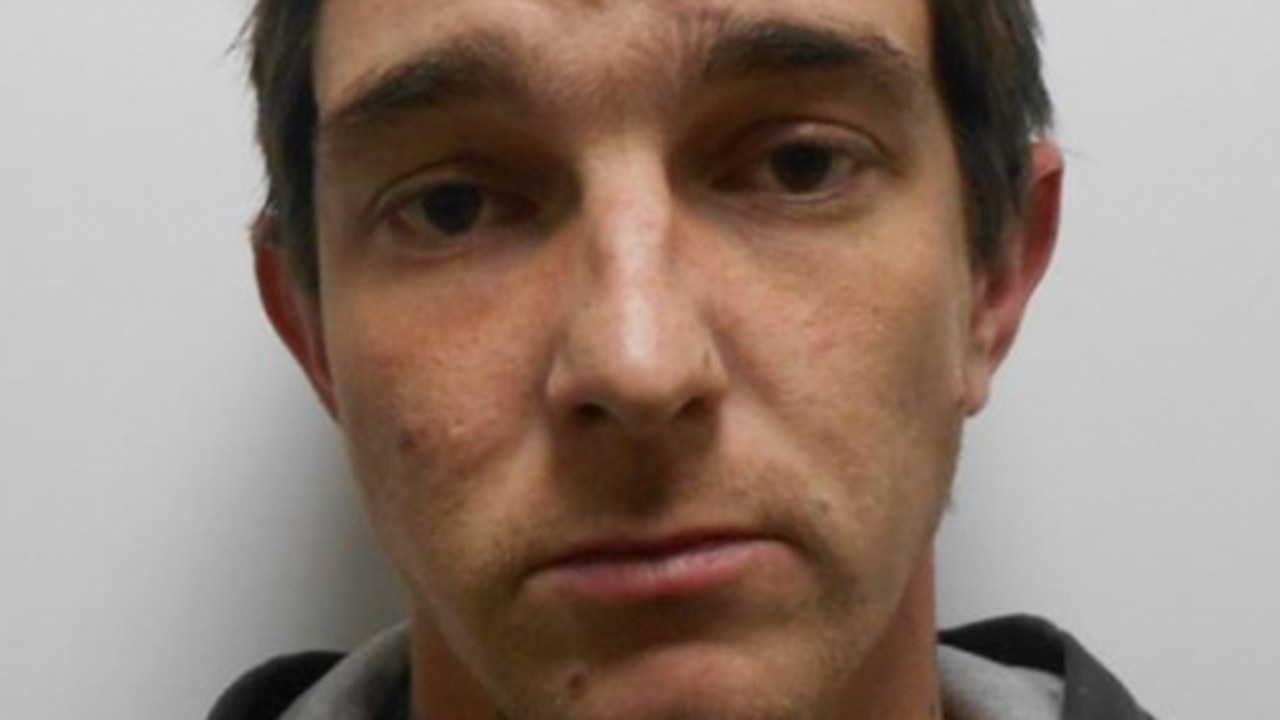Senior cop in Higgins case concedes ‘mistake’ in handling of investigation
A senior officer who investigated Brittany Higgins’ allegations has said police did not think there was enough evidence to charge Bruce Lehrmann.
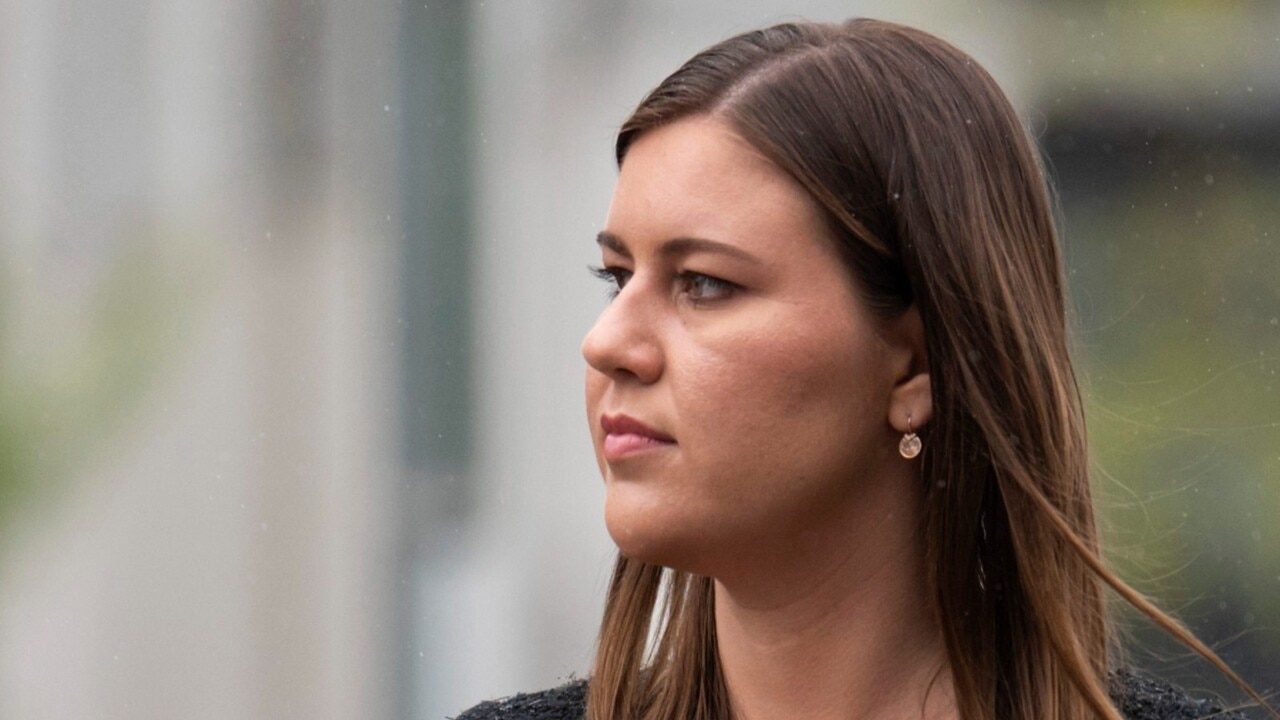
NewsWire
Don't miss out on the headlines from NewsWire. Followed categories will be added to My News.
A senior police officer has claimed police believed there was not sufficient evidence to charge Bruce Lehrmann and raised concerns about the pressure put on investigators to get him before a court.
Detective Superintendent Scott Moller was the third witness to give evidence in an inquiry into how criminal justice agencies handled Brittany Higgins’ allegations of sexual assault.
The inquiry heard the officer and his fellow investigators held a collective view that they had not reached an evidentiary threshold prior to the former ministerial staffer being charged.
But after receiving advice from the Director of Public Prosecutions, Shane Drumgold SC, he changed his mind.

“I didn’t think there was enough evidence,” he said,
“I received the director’s advice and certainly from his advice I decided to go ahead.”
Superintendent Moller said he swore the summons himself so officers who did not believe in it did not have to go through with it.
“I swore the summons because I did not want to put any of my staff in the position where they had to do something they didn’t want to do, didn’t believe in, so I did it,” he said.
MS HIGGINS NOT TOLD BEFORE MR LEHRMANN CHARGED
When the time came to charge Mr Lehrmann, Ms Higgins was left in the dark over fears she would tip off the media.
The inquiry heard on Monday that Superintendent Moller had intended to meet with the former Liberal staffer prior to summons being served, but had their meeting cancelled following a directive from Assistant Commissioner Peter Crosier.
“There were concerns Ms Higgins would go to the media prior to us being able to serve the summons,” Superintendent Moller said, insisting he met with her update her “basically very shortly after”.
The inquiry has heard Ms Higgins was repeatedly warned not to do give any further comment to the media, or risk the outcome of a trial.
But the senior police officer has denied he ever used a “harsh tone” with her despite notes taken at the time by the Victims of Crime Commissioner, Heidi Yates.
“I absolutely agree I told Ms Higgins not to do any media,” he said.
PRESSURE ON POLICE
The senior police officer said investigators were under pressure from the public, media and within the AFP to “expedite” the process and “get Mr Lehrmann before a court”.
“You know, we had a significant amount of external pressure from the media. We had Ms. Higgins that was, you know, wanting this to proceed,” he said.
“We had internal pressure that, you know, we needed to get this done.”

The DPP first raised concerns about “political and police conduct” in a letter he sent the ACT’s chief of police in the days following the mistrial, which ultimately sparked the inquiry.
In the letter, he claimed he felt pressure not to prosecute Mr Lehrmann.
Giving evidence at the inquiry, Mr Drumgold repeated concerns that police had “aligned themselves with an acquittal”, viewed the case as “dead” and were actively looking for evidence to “kill it”.
POLICE MADE ‘MISTAKE’
Superintendent Moller told inquiry police were wrong to hand over Ms Higgins’ sensitive counselling notes to the DPP, in a partial evidence brief in June 2021
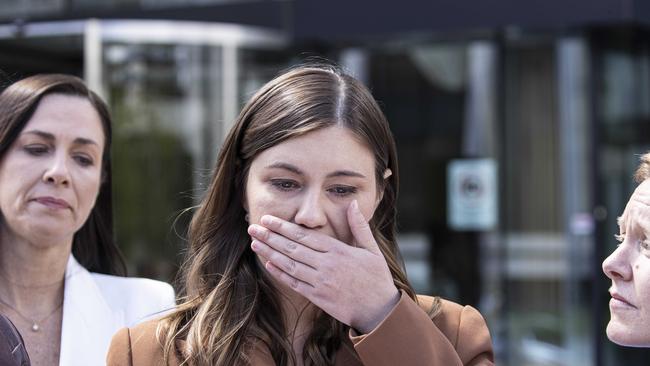
He said handing over the notes was a matter of “full disclosure”.
“We shouldn’t have given them. That’s the bottom line. We shouldn't have handed them over,” Superintendent Moller said on Monday.
“It is a mistake we made.”
Superintendent Moller denied the decision to serve the notes was intentionally made.
DRUMGOLD ‘COLLECTING EVIDENCE’
A key concern for the inquiry to consider has been the release of the full evidence brief, known informally as the Moller Report, to Mr Lehrmann’s former defence counsel, John Korn.
The inquiry has been told the report described Ms Higgins as evasive and uncooperative and raised concerns about her credibility and Mr Drumgold fought to prevent its release. The brief was later leaked to the media after Mr Drumgold dropped the charge.
The brief included Ms Higgins counselling and Canberra Rape Crisis Centre records and the audio visual recordings of her evidence in chief interviews. The redactions were not locked.
After Mr Drumgold became aware of the disclosure, he emailed a series of questions about the handling of the evidence brief.
Superintendent Moller told the inquiry he was of the view the DPP was collecting evidence against police.
“I felt like … Mr Drumgold or the DPP was attempting to collect evidence against the police for use at a later time to show criticism towards police,” he said.
“I had that feeling very early on, to be honest it caused me quite a lot of concern for myself and my investigation team.

“So much so we continually second guessed ourselves about what we were doing and how we were doing it.”
Mr Drumgold gave evidence to the inquiry that during the trial his office effectively “closed ranks” to police because he said he believed they had lost objectivity in the matter.
It included evidence not admissible at trial, a central concern of the DPP.
He said other parts of the brief, such as Ms Higgins’ reluctance to hand over her phone and allegations she deleted content before giving the device to police, could be put to Ms Higgins at trial.
Superintendent Moller said it wasn’t up to him or police to make a decision on what is admissible and what is not.
“For all I know, it may become admissible evidence at a trial later on down the track through some application. So it’s very important for me and my team to share everything,” he said.
The senior police officer however conceded that his briefing written for AFP commander Michael Chew did not note that investigators had found elements of Mr Lehrmann’s account implausible.
“I accept that the more information you can provide the better. In fairness I provided the file path and the information the investigators had in relation to the breadth of evidence,” he said.
“Could I have put some of those details in the report to (Commander Chew)? I could have. I accept that. But I was highlighting what I thought were the key issues.”
COP QUIZZED ABOUT SECOND INTERVIEW WITH MS HIGGINS
Superintendent Moller was also pressed about a decision to conduct a second evidence in chief interview with Ms Higgins.
The inquiry heard police wanted to put inconsistencies they had uncovered to Ms Higgins.
The second interview was conducted just two days before a final report on whether the matter should progress was handed to Commander Michael Chew for consolidation.
Counsel assisting the inquiry, Joshua Jones, asked Superintendent Moller if there would have been enough time to investigate fresh lines of inquiry before the report was finalised.
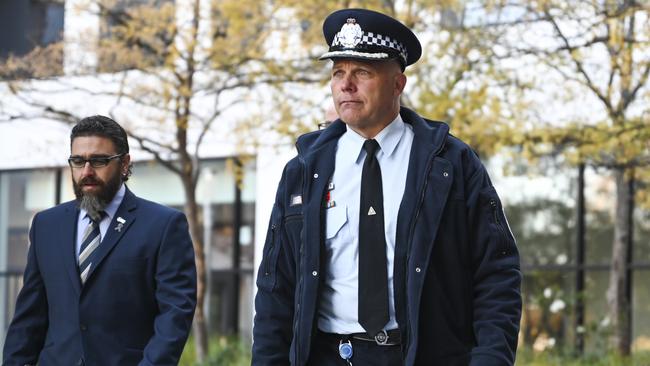
“The second EICI in fact, produced very little value to the investigation,” Mr Jones put to the police officer.
“I think there was value to the investigation that came out of it,” Superintendent Moller responded.
He said the issue raised questions about the “conflicting responsibilities as an investigator”.
“We're torn by trying to get the best possible evidence we can, but also, but trying to support the complainant through this process,” Superintendent Moller said.
“We've also got an obligation to collect the evidence, the best evidence we can, the most thorough evidence we can put before the courts. So it’s an ongoing battle for us. And it’s hard.”
Mr Lehrmann pleaded not guilty to one charge of sexually assaulting his former colleague before the trial was aborted due to jury misconduct.
He has continually denied the allegation and the DPP declined to pursue a second trial due to concerns over Ms Higgins’ mental health and dropped the charges.
Senior Constable Emma Frizzell and AFP Commander Michael Chew are also listed to appear before the inquiry later in the week.
The inquiry continues.
Originally published as Senior cop in Higgins case concedes ‘mistake’ in handling of investigation

